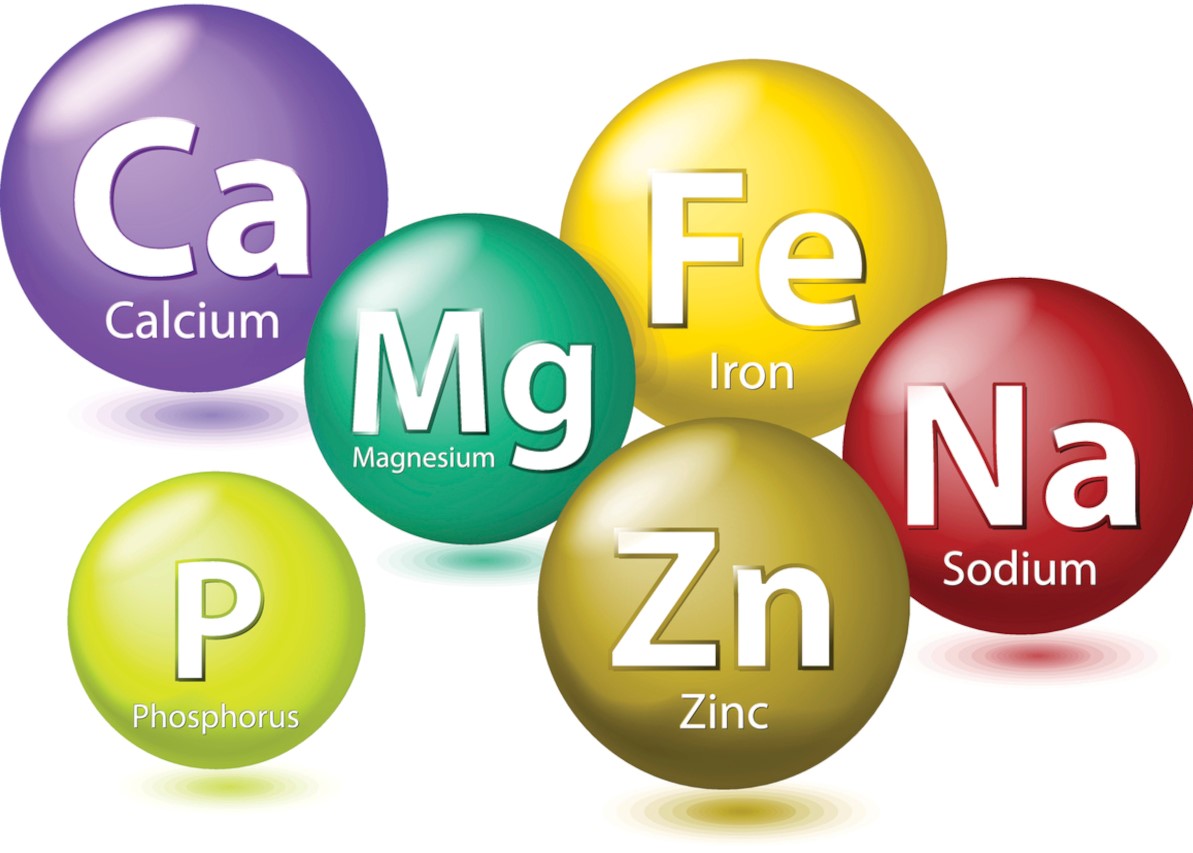Ongoing research is highlighting the potential benefits of zinc and selenium for the human immune system
and their effects on a range of conditions
Due to the continuing increase in the ageing population worldwide and ongoing pressures on health systems, the issue of disease prevention has taken on increasing importance in recent years, including the role of lifestyle choices and supplementation. Appropriate supplementation has also been shown in research to benefit quality of life and sometimes delay disease progression in a number of serious conditions, including cancer.
Among the supplements that have been the subject of focused research are zinc and selenium. Zinc is increasingly used in diet supplementation, including vitamin and mineral supplementation and to treat nutritional deficiencies, while selenium belongs to the drug class of minerals and electrolytes and is also used in patients who may be
nutritionally-deficient.
It became clear as early as the 1960s that zinc is an important component of the human immune system. Zinc deficiency is associated with skin abnormalities, as well as cognitive impairment, hypogonadism, growth retardation, and imbalanced immune reactions, with the latter particularly relating to allergies and autoimmune
diseases. Zinc deficiency is categorised as either ‘severe’ or ‘marginal’ — in its severe form, zinc deficiency is implicated in Acrodermatitis enteropathica, which is characterised mainly by weight loss, diarrhea, recurrent viral and bacterial infections, hair loss, dermatitis, and neuropsychological disturbances. However, according to the authors of a study published in 2017, “all observed symptoms can be corrected by high-dose (1mg/kg) zinc supplementation”.1
Regulatory pathways
Research in recent years has shown an ever-increasing number of regulatory pathways in various immune cells to involve zinc signalling, either directly or indirectly. The authors of the same study note that “zinc seems to balance phosphorylation of signalling molecules in direct and indirect ways, altering the activities of kinases and their antagonists, the phosphatases”.1 Furthermore, the influence of zinc on human health has been highlighted to provide benefits at all stages of life. “The finding that the establishment of the epigenome starts as early as during oocyte development clearly underlines the importance of a well-balanced nutritional and mineral supply during pregnancy and breast-feeding.
Zinc supply influences health and development from early in life, into old age,” wrote the researchers.1
Selenium has also been shown to be an important factor in maintaining an effective immune system. The authors of a 2003 study note that selenium is needed for the proper functioning of NK cells, macrophages, neutrophils, T lymphocytes and other immune mechanisms. In addition, increased selenium intake may be associated with reduced cancer risk and could alleviate other pathological conditions, including inflammation and oxidative stress, as well as being “a key nutrient in counteracting the development of virulence and inhibiting HIV
progression to AIDS”.2
Selenium is also necessary for sperm motility and some findings suggest that it can reduce the risk of miscarriage and, potentially, cardiovascular diseases, and deficiency has been linked to adverse mood states.2
Prostate cancer
A more recent study published in 2016 used rat models to assess the use of zinc and selenium in the aetiology of prostate cancer and addressed the potential role of dual supplementation of both in combination. Selenium can be used in the prevention of cancer and studies have shown that selenium exhibits antineoplastic properties by inhibiting the development of reactive oxygen species, therefore protecting cells against oxidative DNA damage. The authors state that the recommended mean selenium intake is 60?g/day for men and 53?g/day for women.3
“Zinc and selenium supplementation is recommended in the elderly, especially in men of more advanced age, as their homeostasis is altered during the ageing process, due in part to the nutritional deficiencies common in seniors,” the researchers stated.
Zinc deficiency is associated with skin abnormalities, as well as cognitive impairment, hypogonadism, growth retardation, and imbalanced immune reactions
“A number of studies demonstrated that zinc is particularly critical for the normal functioning of the prostate and an appropriately high level should be maintained in this organ.
“The normal human prostate accumulates the highest levels of zinc of any soft tissue in the body, and zinc is particularly important to its normal functioning, especially regarding the consequences of hormone disturbances.”3
Nutrition and chemotherapy
Another study, again focusing on the effects of zinc and selenium on the wellbeing of cancer patients, sought to evaluate their role in supplementation for patients with cancer of the digestive tract. The authors’ findings include the confirmation that polychemotherapy may alter the nutritional status of patients, either directly or indirectly, and the serum levels of selenium, zinc and copper are altered in neoplastic patients.4
Appropriate supplementation may alter the disease course during chemotherapy, the authors suggested: “Our data confirm the presence of the alteration of the nutritional status at the moment of the first
diagnosis of cancer,” they wrote. “In addition, the utility of the support therapy with selenium and zinc has emerged: These, in fact, intervening like enzymatic cofactors in many metabolic processes of synthesis are efficacious in decreasing and/or in delaying the inevitable cachexy. The consequent immune system depression influences the evolution of the neoplastic disease and the chance of success of the chemotherapeutic treatment, with consequent alteration of the quality of life of the cancer patient.”
References
- Wessels I, Maywald M, Rink L. Zinc as a Gatekeeper of Immune Function. Nutrients. 2017 Dec; 9(12): 1286. Published online 2017 Nov 25. doi: 10.3390nu9121286.
- Feren?ík M, Ebringer L. Modulatory Effects of Selenium and Zinc on the Immune System. Folia Microbiologica volume 48, article number: 417 (2003).
- Darago A et al, The Effect of Zinc and Selenium Supplementation Mode on Their Bioavailability in the Rat Prostate: Should Administration Be Joint or Separate? Nutrients, 2016 Oct; 8(10): 601. Published online 2016 Oct 4. doi: 10.3390 nu8100601.
- A Federico et al, Effects of Selenium and Zinc Supplementation on Nutritional Status in Patients with Cancer of Digestive Tract. Eur J Clin Nutr, 2001.







